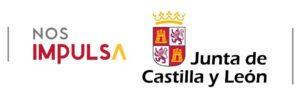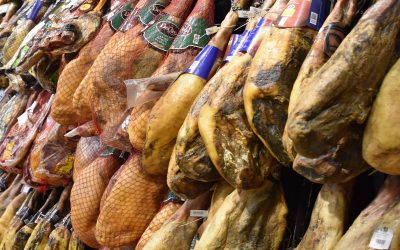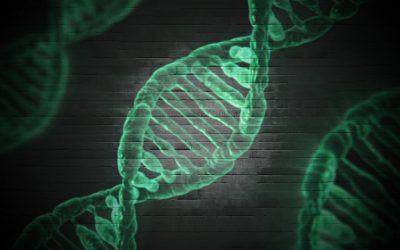CARTIF Projects
Study of the use of alternative protein sources from agro-industrial by-products.
Description
Proteins are one of the essential macronutrients in the diet that are facing a foreseeable shortage due to the strong demand that exists to cover the needs of the coming population. In order to meet this demand, as well as the quality requirements that must be met, new sources of protein need to be incorporated into the diet and processing methods need to be developed to make it easier to obtain and consume. Among the many solutions proposed for this so-called protein transition, the search for new, more sustainable protein sources and the use of technology to make the most of existing resources and use them in a more sustainable way are valued.
As part of its strategy of using technologies to improve the use of alternative sources and the possibility of recovering the value of by-products, the Centre is working on the valorisation of components of the by-product matrix generated during processing and how the use of technologies such as extrusion can help to increase their applicability. In addition, the Centre has been working since the beginning of the Area’s activity on the development of healthier foods by reformulating existing foods, substituting alternative raw materials of greater nutritional value in food formulation and applying processes that promote the increased use of less conventional ingredients and by-products.
The research line aims to increase the extractability of protein sources and other compounds of nutritional interest, naturally present in by-products generated in the transformation processes of the food industry, through the use of “green technologies” of pre-treatment such as extrusion, which allows the transformation of the components of the material to increase its subsequent applicability.
This line includes the need to include equipment that allows the characterisation and quantification of parameters that define the properties of ingredients and finished products at a higher level than conventional chemical determinations. SEM-EDS (Scanning Electron Microscope with Energy Dispersive Spectroscopy) and RVA (Rapid Viscosity Analyser) equipment can contribute significantly to the characterisation of extruded proteins by providing valuable information on the structure, characterisation of particle size and morphology, composition, functional and rheological properties of the extracted proteins.
Objectives
- Acquisition and commissioning of new equipment.
- Identification and improvement of alternative protein sources for incorporation into healthier and more sustainable foods.
- Study of the application of pre-treatment processes as methods for extracting and modifying proteins and other nutrients from agri-food by-products.
- Study of the techno-functional properties of raw materials from valorisation and evaluation of their application to the development of healthy and sustainable foods.
Expected Results
- It will further deepen the knowledge of the starting material by being able to know exactly how the processes affect the molecular structure and thus how they affect the techno-functional properties to the benefit or detriment of identifying new applications for the development of new products.
- Obtaining protein sources from the valorisation of by-products creates an opportunity to meet the Sustainable Development Goals. It will be possible to identify and quantify the effectiveness of these processes and of the extracted proteins to be used as new ingredients without harming the environment.
- A beneficial impact on health, associated with digestibility and amino acid composition, is expected from the way these proteins are extracted, associated with the knowledge that will be established of the process parameters during extraction and the determination of the properties by means of the equipment that is the subject of this investment.
- The aim is to increase the added value of natural resources such as the by-products generated by the usual activity of the food industry to be used as a source of new ingredients, thus closing the production cycles and helping to minimise the impact of food waste.
R&D Line
- Research into the use of new protein sources and application of innovative technologies for modifying the techno-functional properties of ingredients and obtaining new food products.
Subvención de Apoyo a la inversión para la mejora de las capacidades científicas y tecnológicas de los Centros Tecnológicos de la Comunidad de Castilla y León (2023)
File: 2023 CCTT 09
![]()
![]()

Total Budget: 342,000€
CARTIF Grant: 171,000€
Duration: 02/10/2023 – 31/05/2024
Co-financed with ERDF funds contributing to the Policy Objective “OP1: A more competitive and smarter Europe, promoting innovative and intelligent economic transformation and regional connectivity to information and communication technologies”.
Responsible
Belén Blanco Espeso
Division of Agrifood and Processes
Networking
Other projects:
CAMPOFRÍO
The CAMPOFRÍO project studies and develops a process for reducing salt content in cured ham. Development of a salt content evaluation system in sliced cured ham with on-line NIR technology.
CIBIC
The CIBIC project arises with the objective of improving the services provided by the companies of conservation of infrastructures, based on the application of new technologies to carry out the concept of intelligent systems that will help to improve the quality and the innovation of these services.
REHABCAR
El proyecto REHABCAR (REHABilitación de CARreteras y autopistas) desarrolló nuevas herramientas para la transformación de las carreteras y autovías existentes en infraestructuras económicamente sostenibles y de alta calidad para prolongar su vida útil y adaptarlas a las nuevas necesidades del tráfico.
LIFE RESCATAME
RESCATAME represents a new system for the sustainable management of traffic through the use of models that predict pollution levels, which are supported by data collected by the network of air quality sensors, and that can help to execute a rapid action.
BIOREFINERÍA FT
The FT BIOREFINERY Project consists in developing a technology that allows obtaining 2nd generation liquid biofuels (synthetic diesel) and electrical energy, through the application of gasification and co-gasification processes, of different types of solid and / or liquid waste ( herbaceous biomass, lignocellulosic, glycerin, etc.)
BIALEMA
BIALEMA: RED for the production of Biofuels and its impact on food, energy and the environment. Conducted by Dr. Antonio Francisco Valdes Delgado (CUBAENERGIA).
DINAMO
The DINAMO project is responsible for the development and validation of nanocapsule and nanostructure production technologies of active molecules with functional properties for food use.
BIORECOS
The BIORECOS Project aims to design and build a demonstration plant of a modular nature that allows, through pyrolysis, the production of charcoal and / or active coal, as well as the generation of electrical energy.
ENHANCE HEALTH
The ENHANCE HEALTH project focuses on environmental and health concerns related to air pollution produced by industries and waste incinerators in urban areas.








